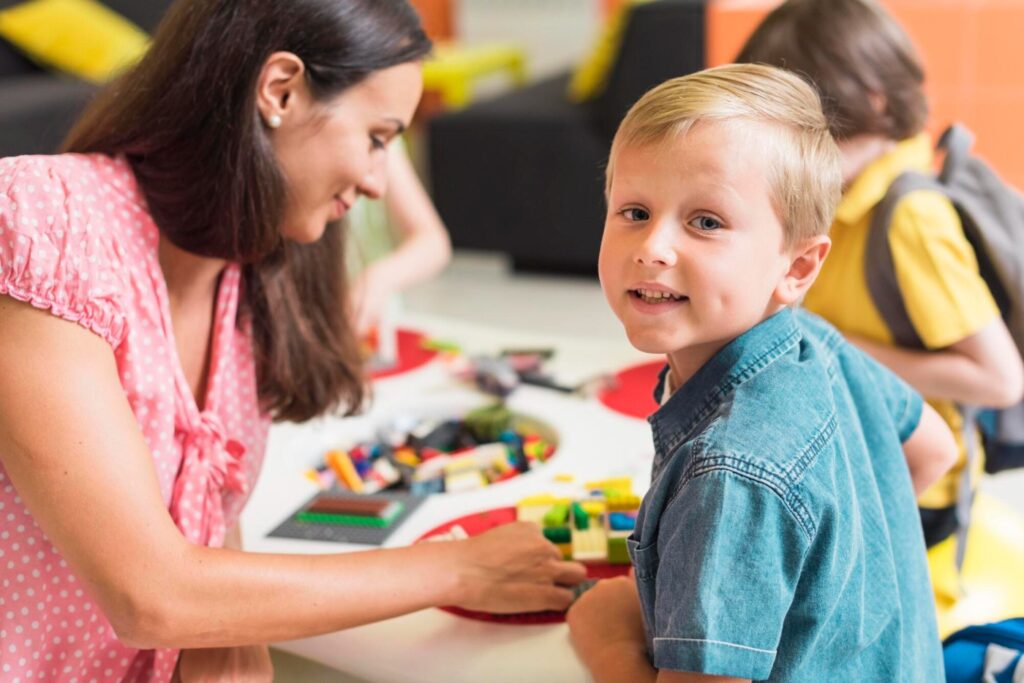Early childhood education lays the foundation for a child’s cognitive, emotional, and social development. In a bustling and vibrant city like Dubai, parents are increasingly seeking high-quality nursery programs that provide both care and a stimulating learning environment. Nursery Dubai Marina has emerged as a preferred choice for many families due to its structured curriculum, nurturing environment, and focus on holistic development. However, a child’s learning experience is not limited to the classroom. Parents play a crucial role in reinforcing learning, nurturing curiosity, and establishing habits that contribute to long-term educational success.
Supporting your child’s learning at nursery involves understanding the curriculum, creating consistent routines, fostering communication, and engaging in activities that complement classroom instruction. By actively participating in your child’s early education, you can strengthen their confidence, curiosity, and love for learning, ensuring that they get the most out of their nursery experience.
Understanding the Nursery Curriculum
The first step in supporting your child’s learning is to familiarize yourself with the curriculum followed at the nursery. Many nurseries in Dubai, including those in Dubai Marina, incorporate internationally recognized frameworks that emphasize play-based learning, social interaction, and cognitive development. Parents who understand the learning objectives for each stage can reinforce key concepts at home, making learning continuous rather than confined to the nursery setting.
For instance, if the nursery focuses on early literacy skills through storytelling, parents can encourage reading at home or engage in activities that strengthen vocabulary and comprehension. Similarly, if numeracy and problem-solving are emphasized, parents can use everyday situations such as cooking or shopping to introduce counting, measurement, and logical thinking. By aligning home activities with the nursery curriculum, parents create a seamless learning experience that enhances understanding and retention.
Establishing Consistent Routines
Children thrive on routine, as it provides structure and predictability in their daily lives. Parents can support learning at nursery by establishing consistent routines that complement school schedules. This includes regular sleep patterns, nutritious meals, and scheduled time for learning and play at home. A predictable routine helps children feel secure, which in turn allows them to engage more effectively in classroom activities.
Parents can also allocate specific times for reading, creative play, and interactive learning. Even short, focused sessions at home can reinforce concepts introduced at nursery, strengthen memory retention, and promote a positive attitude toward learning. Consistency and repetition are key, as children at this stage absorb information most effectively through regular exposure and practice.
Encouraging Communication and Language Skills
Language development is a central aspect of early childhood education. Parents can support learning at nursery by engaging in conversations, asking open-ended questions, and encouraging children to express themselves. Simple daily interactions, such as discussing the events of the day or describing activities, can significantly improve vocabulary, comprehension, and communication skills.
Additionally, parents can read aloud to children, introduce songs and rhymes, and explore storytelling activities. These practices not only enhance language skills but also stimulate imagination and creativity. Encouraging children to narrate their experiences at nursery, share observations, or recount stories helps them build confidence and fosters a lifelong love for learning and communication.
Supporting Social and Emotional Development
Learning at nursery extends beyond academics; it also encompasses social and emotional growth. Parents play an essential role in helping children navigate relationships, manage emotions, and develop empathy. By modeling positive social behavior, guiding conflict resolution, and encouraging cooperation at home, parents reinforce the social skills being cultivated at nursery.
Participation in playdates or group activities outside the nursery can further enhance social development. These interactions provide opportunities for children to practice sharing, turn-taking, and collaborative problem-solving. When parents take an active interest in their child’s emotional well-being, they create a supportive environment that enables the child to thrive socially and academically.
Creating a Learning-Friendly Environment at Home
A conducive learning environment at home is vital for reinforcing nursery education. Parents can support their child by designating a quiet, organized space for study, reading, and creative activities. This does not need to be elaborate; even a small corner with access to books, art supplies, and educational toys can make a significant difference.
In addition to physical space, parents can provide learning materials that complement nursery activities. Puzzles, building blocks, interactive games, and educational apps can enhance problem-solving, critical thinking, and creativity. The key is to offer tools that encourage exploration and curiosity while making learning enjoyable and interactive.
Participating in Nursery Activities and Events
Active parental involvement in nursery activities can significantly enhance a child’s learning experience. Many nurseries in Dubai Marina organize parent workshops, open days, and special events that allow parents to engage directly with the educational process. Attending these events helps parents understand the teaching methods, observe their child’s progress, and collaborate with educators to support learning at home.
Participation can also extend to volunteering for classroom activities, assisting with art projects, or helping organize events. These interactions not only strengthen the parent-child bond but also demonstrate to the child that learning is a shared and valued experience, motivating them to actively participate and engage in their education.
Encouraging Curiosity and Exploration
Curiosity is a driving force behind effective learning. Parents can support their child’s learning at nursery by fostering a sense of wonder and encouraging exploration. Simple activities such as nature walks, visits to museums, or science experiments at home can spark curiosity and connect classroom concepts to real-world experiences.
Encouraging children to ask questions, seek answers, and explore their surroundings helps develop critical thinking skills and a love for discovery. When children feel supported in their explorations, they are more likely to engage deeply with learning tasks at nursery and develop lifelong skills in observation, analysis, and problem-solving.
Using Technology Wisely
Technology can be a useful tool to complement learning when used appropriately. Educational apps, interactive games, and digital storytelling platforms can reinforce concepts taught at nursery Dubai Marina. Parents should select high-quality, age-appropriate content that encourages problem-solving, creativity, and cognitive development rather than passive consumption.
Additionally, setting limits on screen time and balancing digital activities with hands-on play ensures that technology enhances rather than replaces traditional learning methods. When used mindfully, technology can be an engaging way to reinforce nursery education and provide children with new opportunities for learning.
Collaboration With Educators
Building a strong partnership with nursery educators is crucial for maximizing a child’s learning potential. Parents can support learning at nursery by maintaining open communication with teachers, seeking feedback, and understanding each child’s strengths and areas for improvement. Regular updates from teachers help parents tailor home activities to reinforce classroom learning and provide targeted support where needed.
Collaborating with educators also allows parents to align teaching strategies at home with those used at nursery, ensuring consistency and reducing confusion for the child. By working together, parents and teachers create a cohesive learning environment that nurtures the child’s development both inside and outside the classroom.
Monitoring Progress Without Pressure
While supporting learning is important, it is equally vital for parents to monitor progress without placing undue pressure on children. Encouragement, praise, and recognition of effort rather than results foster a growth mindset and build resilience. Parents should celebrate achievements, provide constructive guidance, and offer support during challenges, helping children develop confidence and a positive attitude toward learning.
Observing progress through informal conversations, artwork, and participation in activities provides insights into a child’s development without creating stress or anxiety. A balanced approach ensures that learning remains enjoyable and meaningful.
Final Thought: Fostering Lifelong Learning Beyond Nursery
Supporting learning at nursery Dubai Marina involves more than simply supervising homework or attending events. It requires active engagement, understanding of the curriculum, consistent routines, and a nurturing environment that encourages curiosity, creativity, and social growth. By participating in their child’s educational journey, parents can enhance cognitive development, emotional well-being, and a love for learning that lasts a lifetime.
Families seeking similar quality education and support can explore options at nursery JBR, which emphasizes holistic development and collaboration between parents and educators. When parents actively support learning, nurseries become more than a place of care—they transform into an environment where children thrive academically, socially, and emotionally.



